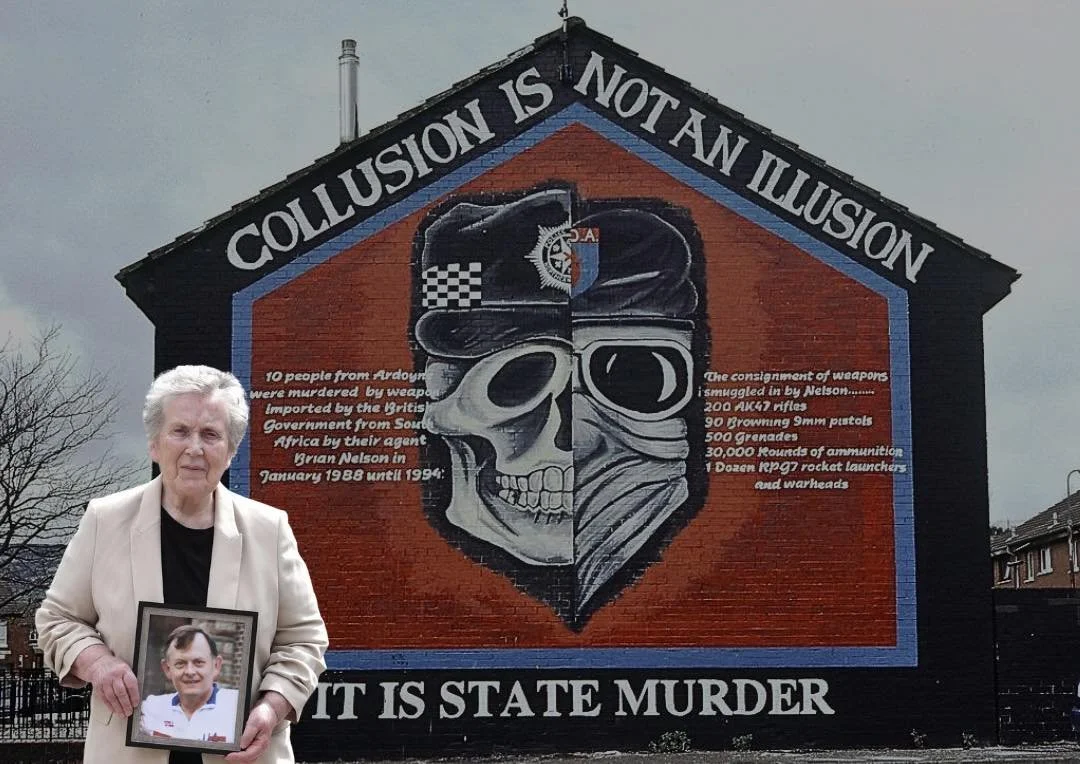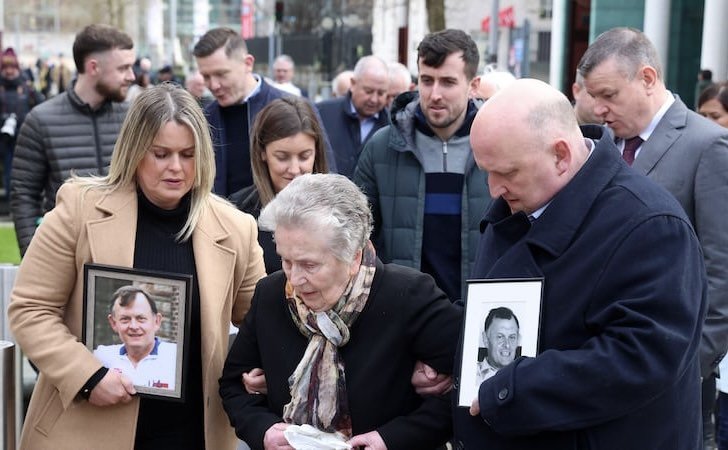Collusion Was Never An Illusion
On Tuesday of this week, yet another preliminary hearing was held in a Belfast coroner's court relating to the murder of Sean Brown twenty-six-years ago.
In 1997, Sean Brown, the sixty-one-year old chairperson of his local GAA club, Bellaghy Wolfe Tones, was locking the gates of the club when he was abducted and tortured by members of a unionist death squad.
Sean’s body was later found several kilometers away beside the burning shell of the car the unionist death squad used - he was shot at least six times.
On Tuesday morning, counsel for the coroner Joseph Aiken KC said documentation shown to the inquest "indicates that in excess of twenty-five individuals were linked through intelligence to the murder of Sean Brown.”
Aiken added: "The intelligence material indicates that those individuals are said to have been involved at the material time with loyalist paramilitaries".
Even more shockingly, the counsel for the coroner went on to assert a very damning fact - "The intelligence material indicates that, at the time of the death of Sean Brown, a number of the individuals linked through intelligence to the murder were agents of the state."
It previously emerged that one suspect in the murder was believed to be a serving member of the Royal Irish Regiment, while another suspect possessed a ‘personal protection’ weapon and was regularly visited by an RUC officer at his home.
Sean Brown’s family attending the inquest into his 1992 murder by a state sponsored unionist death squad.
Around 40 inquest-related hearings have already been held into the murder of Sean Brown, with the inquest being repeatedly delayed by state agencies failing to provide full disclosure on the information they possess about the murder.
In recent weeks, a series of closed hearings were held to consider public interest immunity (PII) applications. PII certificates are used by state agencies to withhold information they do not want the public to see or hear.
Following this week's shocking revelations, Sean Brown’s daughter, Siobhan, said she believes her father’s killers were protected and continue to be given cover by the state.
She added, “We knew all along that there was something there but it came as a big shock and I think the fact there was over 25 potential suspects involved...that I think, was a bigger shock - the volume of them.”
Twenty-four-hours later the focus moved from the coroner's court to the Belfast High Court. There, a judgment was delivered in a legal challenge taken against the British government's so-called ‘Northern Ireland Troubles (Legacy and Reconciliation) Act 2023’.
The court ruled that the conditional immunity from prosecutions for conflict-related cases offences, contained in Britain's controversial ‘Legacy Act’, is in breach of Article 2 of the European Convention on Human Rights. The court indicated that other parts of the legislation may also be the subject of future legal challenges.
Britain introduced this legislation primarily to protect both past and serving members of its armed forces, its intelligence services and its police force in the Six Counties from criminal prosecution. State agents (informers) would also be similarly protected by the same process.
The British government is still actively seeking to close off those remaining, albeit very limited, routes to justice that currently exist in the Six Counties.
The aforementioned case was taken against Britain in a joint effort by Martina Dillon, John McEvoy, Lynda McManus and Brigid Hughes.
Martina Dillon's forty-five-year-old husband, Seamus, was shot dead by a unionist death squad in a gun attack at the Glengannon Hotel in Dungannon, County Tyrone in 1997.
John McEvoy survived a gun attack by a unionist death squad on the Thierafurth Inn in Kilcoo, County Down in 1992. Another man, Peter McCormack, was killed in that shooting.
Lynda McManus's father, James, was among those wounded in the Sean Graham Bookmakers Massacre on Belfast's Ormeau Road in 1992, during which five men were murdered and seven others were seriously injured.
Brigid Hughes's husband, Anthony, was an innocent civilian shot dead by the SAS during the ambush of an IRA unit in Loughgall, County Armagh in 1987.


